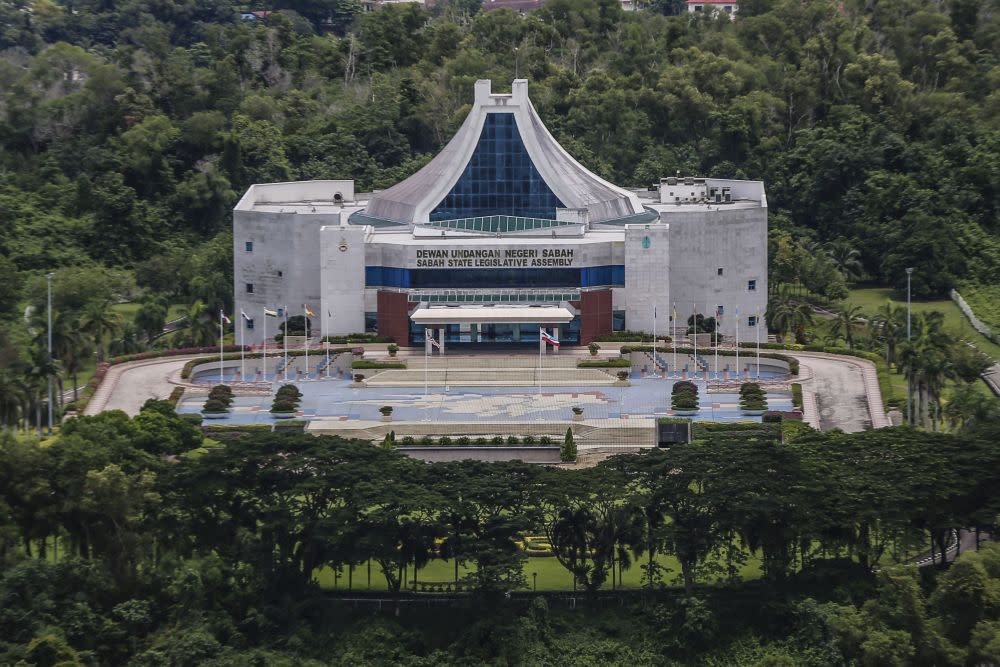Sabah passes anti-hopping law; amendment on CM appointment also approved despite furore

KOTA KINABALU, May 25 — The Sabah assembly today passed an amendment to the state constitution to discourage political defections that have become associated with the state.
The amendment was approved almost unanimously by lawmakers in attendance via a voice vote.
A separate vote was also held on another amendment to remove clause in the Sabah constitution related to the criteria for appointing the chief minister, which was appended to the Bill.
Speaker Datuk Kadzim Yahya allowed the House to take a separate vote for the controversial deletion after state Opposition Leader Datuk Seri Shafie Apdal made the request for one.
Despite earlier misgivings about the decision to append the second amendment to the anti-hopping Bill, this was also passed when 61 lawmakers from the 79-member assembly — over two-thirds — voted for it; 14 Warisan assemblymen in the Opposition voted against it.
Four assemblymen were absent: Lamag assemblyman Datuk Bung Moktar, Melalap assemblyman Datuk Peter Anthony, Bandau assemblyman Datuk Wetrom Bahanda and nominated assemblyman Datuk Suhaimi Nasir.
The language of the state Bill was similar to the amendment to the Federal Constitution for the anti-hopping law, with the addition of the removal of Article 6(7) from the state’s constitution.
Members of the Opposition earlier expressed their full support the Bill with conditions, citing the deleted provision stating that the appointed chief minister must be from the party with the majority of seats in the state assembly.
It would mean that the Sabah governor could appoint any member of the assembly, who, in his judgement, commanded the confidence of the majority.
The detractors said that the provision was an important safeguard to uphold democracy to ensure that the chief minister came from the people’s mandate, as well as discourage power grabs in the event of a marginal victory by a political party.
Backbenchers Datuk Ewon Benedick (Kadamaian) and Datuk Mohamadin Ketapi (Segama) had raised concerns about the inclusion of the second amendment during the debate earlier, but later voted for it when it was carved out.
Chief Minister Datuk Seri Hajiji Noor, in his winding-up speech, said the current political scenario meant the clause — that the chief minister be the leader of the party with the majority — was no longer relevant.
“The state, and even the federal government now consists of a combination of parties or coalitions that did not win the majority of seats during the election. So, the provision is no longer applicable. So, that is our intention. We are not trying to reduce the Head of State’s power,” he said.
He also cited the 2020 state election when there was no party or coalition with a clear majority, but Warisan had the most seats. He said that although Sabah Governor Tun Juhar Mahiruddin was presented with the proposal to appoint Shafie as the leader of the party with the most seats, the former opted instead to choose a leader from the Gabungan Rakyat Sabah coalition.
“His Excellency had decided to go with GRS, even though we were ‘unofficial’, but he felt we could command the confidence of the majority of the House,” he said.
“One day, if we find that this is not working, we can form a committee and bring it up to table again,” he said after the fierce debate from Shafie.
“But now, we won’t have to be worried about our state assemblymen jumping,” said Hajiji, adding that he expects that the governor will issue the gazette several weeks from now.
Hajiji also addressed concerns about whether the anti-hopping law would apply to appointed assemblymen, which Shafie said could later affect the state’s political stability.
Hajiji said the six nominated assemblymen were not subject to the law as they were not elected by voters and did not represent any constituency, which meant their affiliation would have little consequence.



